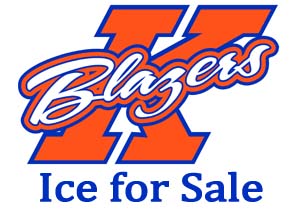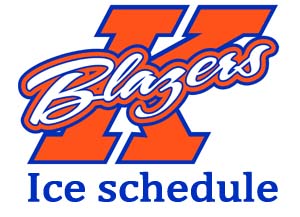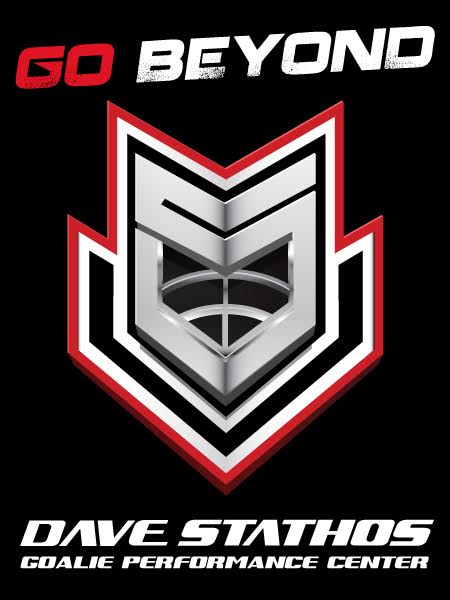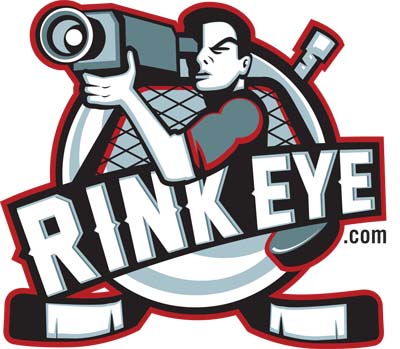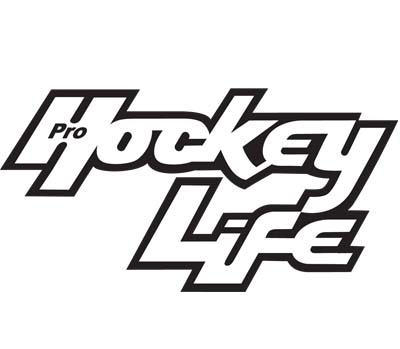Volunteer Screening
Screening is an on-going process designed to identify any person (volunteer or staff) who may harm children or vulnerable persons.
Volunteer screening serves two main purposes:
- to create and maintain a safe environment
- to ensure an appropriate match between volunteer and task
Why Screen?
Any organization that provides programs to vulnerable people has an obligation to appropriately screen people who for them, including volunteers.
Screening is not only the right thing to do; it is legally required under the principle of “Duty of Care.” – Hockey Canada Directive
The Hockey Canada Board of Directors ratified the following recommendation in 2010: Effective 2011-2012 all Minor Hockey Associations and leagues, under the direction of their Branches, are to have a documented screening process.
Hockey Canada Screening Policy
Determining the Risk
As a matter of policy, all volunteer positions will be examined in light of the relevant factors to determine the degree of risk involved. When there is a doubt as to the degree of risk, a position should be categorized as “high risk.” Volunteers and employees who are active in more than one capacity should be screened for the position with the highest level of risk. When a person moves from a position with a low level of risk to a position of high risk, appropriate screening will be carried out for the new high-risk position. More information is available within the position Risk Matrix.
Job Descriptions
Clear and precise position descriptions have been developed for each position within the Association, with High and Medium positions responsibilities fully articulated in the position list document. Responsibilities and expectations are clearly laid out, including the position’s dos and don’ts. These position descriptions also indicate the screening requirements IAW with the risk matrix.
Recruitment
When the KMHA post notices for volunteer positions, the advertisement indicates that screening is part of the application process. Advertising that there is a screening process in place demonstrates that our Association takes the personal safety of children entrusted in their care seriously and sends the message to undesirables need not bother to apply.
Applications
KMHA utilizes application forms that included required contact information. If the volunteer position requires other screening measures (medical exam, driver’s record, police records check, coaching/training certification), the application form will ask for permission to do so.
Interviews
It is recommended that when KMHA conducts interviews to provide an opportunity for the applicant to speak to their background, skills, interests, and availability, and also to explore any doubts about the suitability of the applicant. Volunteer interview questions are provided to assist in interview process. It is recommended that Interview Committees be made up of a minimum of 3 people selected by the President, and who do not have a “conflict of interest”.
Checking References
- Describe the position clearly to the person giving the reference
- Ask about the applicants skill and suitability for the tasks
- Identify the level of trust that will be developed with children within the position
- “Would you be comfortable with “Sam” working alone with your child?
- Leave space in the all for open comment
- Could you comment on “Sam” and how you think he would fit this job?
Do more than one reference check. Get permission from individuals to contact current or former employers.
Police Record / Vulnerable Person Checks
Police Record Checks will be performed according to the level of risk determined by the assessment. The procedures for obtaining PRC’s are determined by local policing agencies and can vary by region. It is recommended that PRC’s be re-submitted for every applicable position (as determined by level of risk) every third year.
The KMHA recognizes the sensitivity of PRC results and determine procedures for confidentiality, including persons authorized to view results, determining eligibility to volunteer and the storage of the documents.
Vulnerable Persons Checks
There are measures in place to ensure people convicted of sexually based offences do not work with the vulnerable sector.
If a pardon has been granted, the criminal history information about an individual convicted of a sexually based offence is retrievable by law enforcement only for the purposes of a Vulnerable Sector search.
Vulnerable Persons Checks (Updates)
- New automatic query of flagged pardoned sex offender records based on the gender and date of birth of the applicant.
- Fingerprints are now required to complete a Vulnerable Sector Verification when the gender and date of birth of an applicant matches a pardoned sex offender record.
- Ensures that individuals, who have obtained a legal name change, are properly screened for pardoned sex offender records.
- Vulnerable Sector Verifications are treated as priority requests when fingerprints are submitted to the RCMP
Orientation and Training Sessions
KMHA provides orientation and training sessions relevant to most positions, with orientation and information sessions for general members; more detailed and/or certification training is provided (i.e. Coaches/Trainers etc). Orientation sessions that include the policies and procedures of the organization in order to ensure the volunteer is well informed are performed in the fall and updates are available throughout the hockey season from the KMHA website. Probation periods may also be considered giving both the KMHA and the volunteer time to learn more about each other and further determine the fit between the volunteer and the position.
Supervising and Evaluating
It has been determined that the identified level of risk associated with a volunteer position will determine the necessary degree of supervision and evaluation. If the risk is great, it shall follow that the volunteer will be under close supervision. Frequent feedback in the first year is particularly important.
The KMHA shall perform evaluations based on position descriptions at the mid-year and year-end in the form of on-line surveys from the KMHA membership and coaches will be monitored throughout the year by the Coach Mentor and feedback provided as necessary.
Following-up on program participants
It is recommended that the KMHA Board members have regular contact with participants and family members. Volunteers have the ability to comment and provide valuable feedback to KMHA through the KMHA END OF SEASON SURVEY – Volunteer and players and parents have an opportunity to provide feedback to KMHA, through the mid-year and end-year coaches and team staff surveys provided through on-line forms submissions.
Volunteers should be made aware of any follow-up activities that may occur. These could include spot checks for volunteers in high-risk positions. Ensure that the volunteer is aware that any follow-up that happens is because of the level of risk in the position, and that there is nothing personal about it. This information is to be conveyed via the KMHA website and during parent orientation and information sessions in the fall.
Information Privacy Protection
The Privacy Act is used to support and promote electronic commerce by protecting personal information that is collected, used or disclosed in certain circumstances, by providing for the use of electronic means to communicate or record information or transactions and by amending the Canada Evidence Act, the Statutory Instruments Act and the Statute Revision Act.
PIPEDA
KMHA will respect the Personal Information Protection and Electronic Documents Act by ensuring that:
- it obtains the clear consent of an individual before it collects uses or discloses personal information about individuals.
- it uses the information for the purposes for which it has consent;
- it protects the information from unauthorized access and use;
- it keeps the information up-to-date and correct so as not to make decisions based on wrong information;
- it destroy the information when it no longer needs it for the original purpose; and
- it implements accountability mechanisms in it’s organizations to ensure compliance with the above.
KMHA Directors will ensure that they receive appropriate training in privacy concepts and that there is some privacy expertise on their respective boards. KMHA Directors will ensure that at least one person has been designated to be accountable for the organization’s privacy compliance, currently the Officer Manager and Risk and Safety Coordinator. As one of the persons assigned is a staff person, of this responsibility, the KMHA directors have ensured that privacy compliance is a part of their performance evaluation and compensation. KMHA Directors shall undertake periodic privacy self-assessments and privacy audits and to report to the board on these activities on a regular basis.
Implementing PIDEDA Questionnaire
Each year the President will designate a member of the Executive to perform the PIPEDA Questionnaire to ensure that the KMHA has complied with the Act. This person will normally be Risk and Safety Coordinator.
KMHA – Executive Implementation of Screening Package
Implementation
- Following the Branch wide training given to KMHA Risk and Safety, the R&S Coord will make presentations via the KMHA website and KMHA meetings, so that KMHA executives can see the importance of screening and how we intend use the toolkit to complete our executive specific plans.
- Risk and Safety will have information available via the KMHA website for our membership to learn of the importance of screening and how we used the District Branch toolkit to complete our specific plans. This information will be passed to the membership via the annual AGM and at the welcoming orientation brief for each level of players given by the Competitive and House League Convenors/Representatives.
Links
- Position List (.doc – 364 KB)
- Risk Matrix (.xls – 329 KB)
- Forms
- KMHA Coach (.docx – 323 KB)
- Volunteer Application (.doc – 317 KB)
- KMHA End of Season Survey – Volunteer (.doc – 286 KB)
- PIPEDA (.pdf – 101 KB)
- Interview Questions (.doc – 318 KB)
- Police Record / Vulnerable Person Checks (.pdf – 598 KB)


